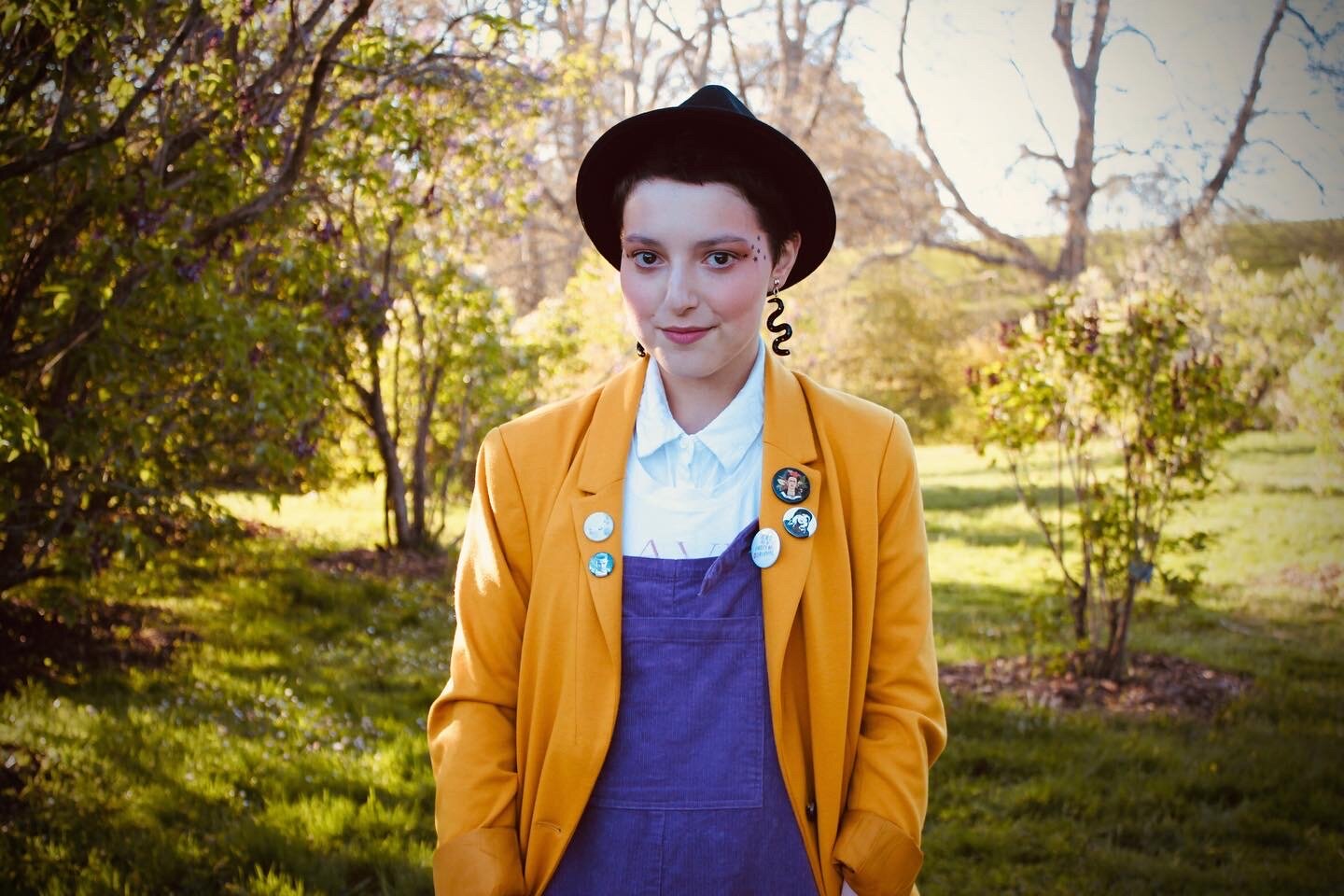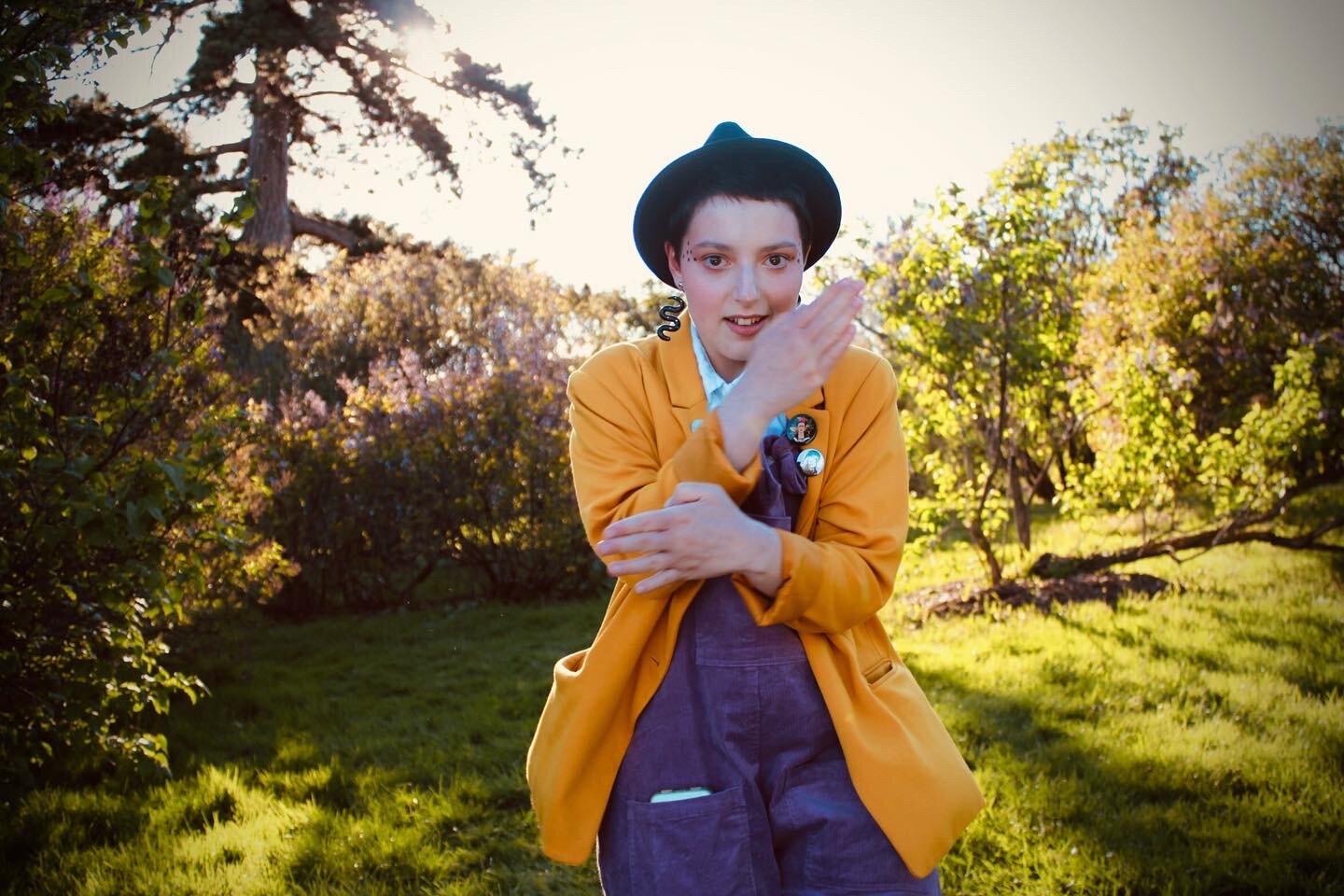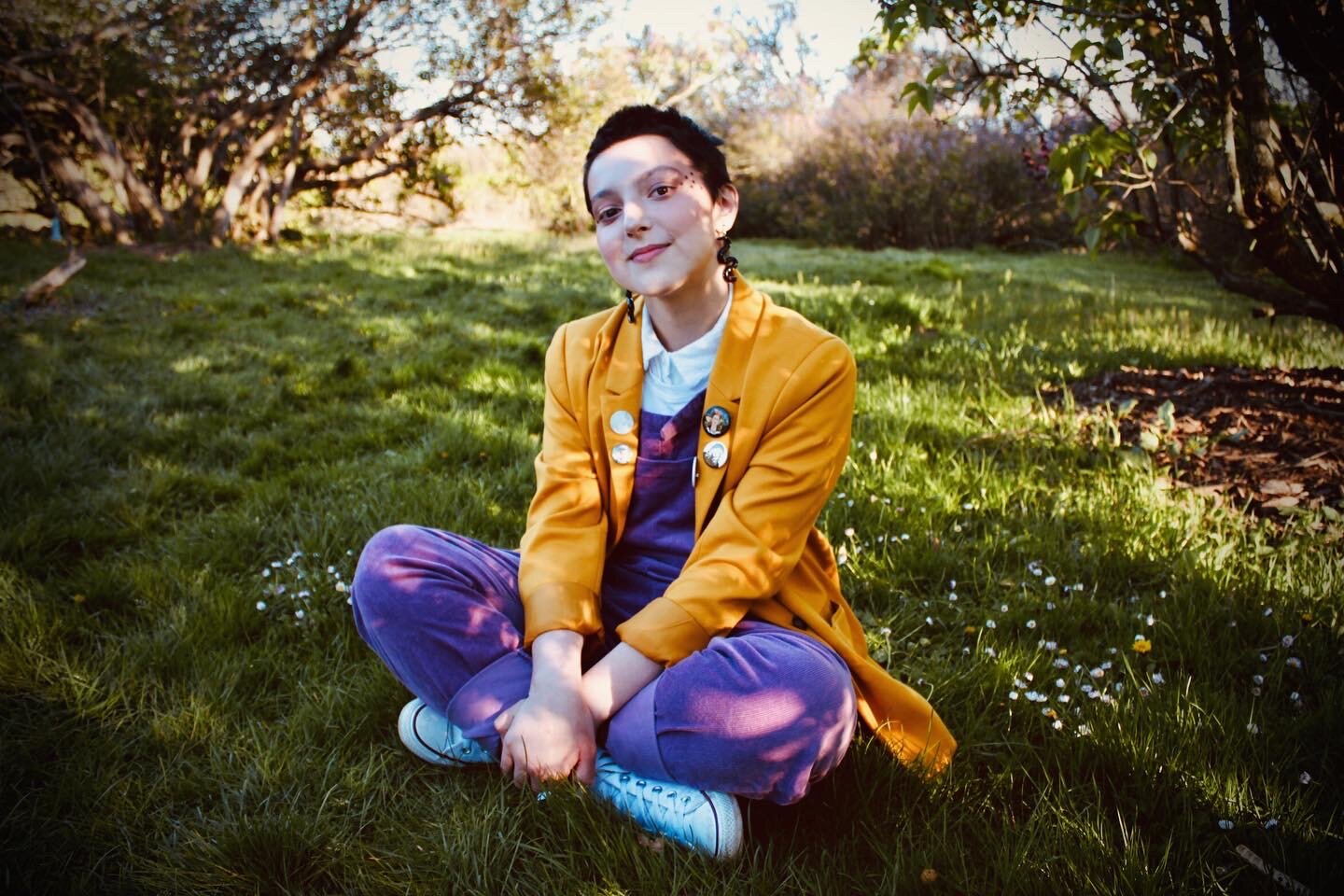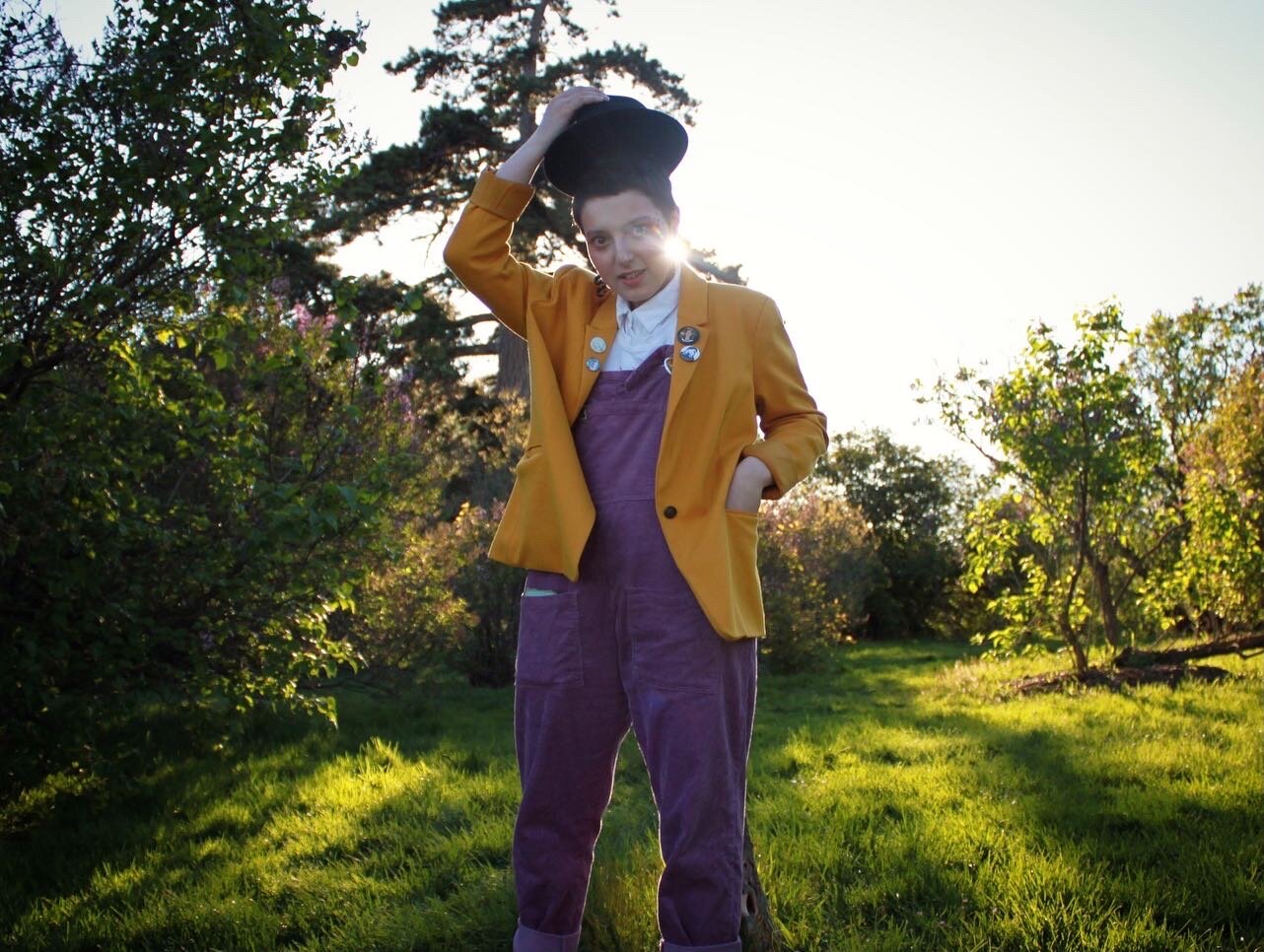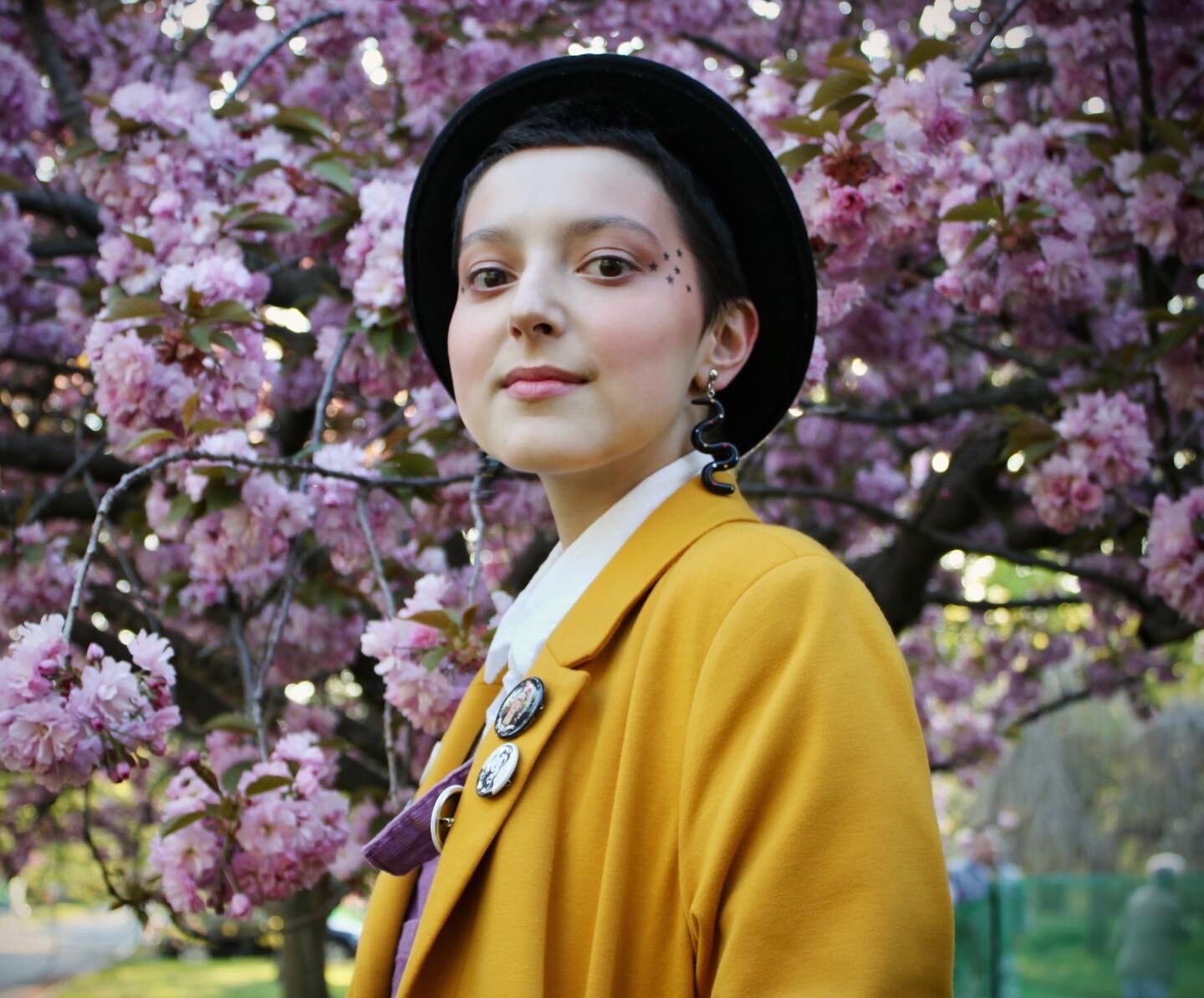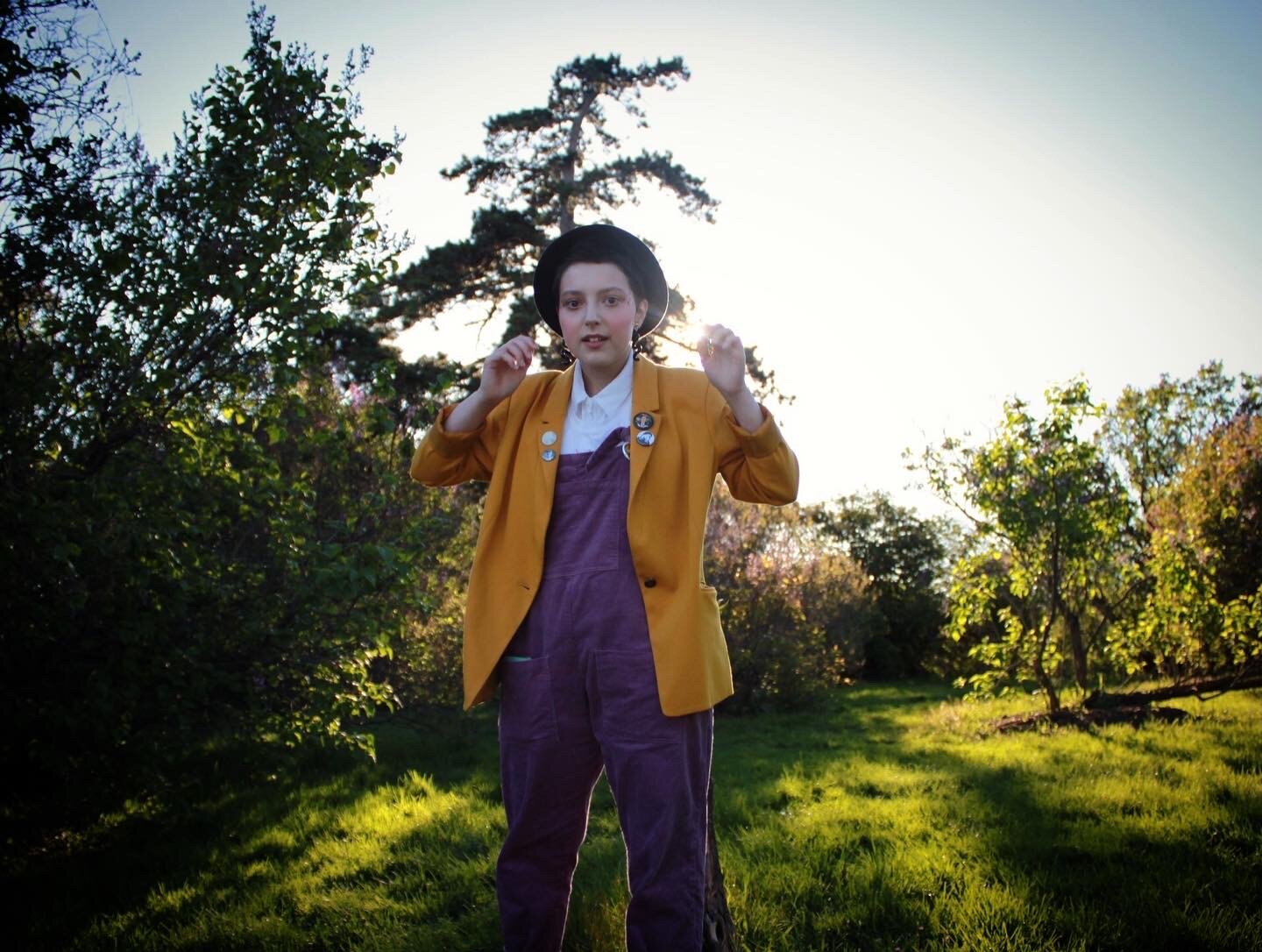Laura Babiuk
“I hope that my art connects with others in the way they need. Maybe it brightens their day, because life is hard sometimes. Or maybe it’s knowing someone is out there and they “get it”. Whatever it is, I hope they find some comfort and I hope they feel a little less alone.”
NAMI: Have you ever had any mental health struggles? Do you live with a diagnosis? What has your experience been?
LB: It honestly took me many years to acknowledge my own mental health struggles. In the past, I would focus on my physical health, ignoring my mental health in times when I definitely needed more help than I thought. Last summer, I hit one of my lower points after a pretty traumatic spring. With encouragement from my sister, Catherine (who I love dearly and who has been very open about her own mental health journey), I took steps to start taking medication and started speaking to a therapist about my depression and anxiety. I was given the formal diagnosis of “persistent adjustment disorder with depression and anxiety” from my therapist (who is amazing and helped me so much). I don’t typically refer to that long name when voicing my experience with my mental health, but I completely understand how important it is to have a name for what you are feeling. I used to think that my experience didn’t matter because it “wasn’t as bad as others,” and I would pride myself on keeping it all in and looking okay. But after working through a lot of internalized ableism and self doubt, I realized that everyone’s experience is valid, big or small and I am starting accepting that for myself too.
NAMI: How have you healed, recovered, and grown from your experiences?
LB: I’m really lucky to have a great support system that helps me through hard seasons. Acknowledging that I struggle with my mental health and validating my experience was a necessary growing process that brought me a lot of healing. Taking the proper medication was also super helpful for me. I didn’t even realize how much I was struggling until I felt a bit lighter. I tend to think I can do everything on my own, so knowing it’s more than okay to need a little (or a lot) of help has been pivotal in my life for many situations.
NAMI: If you consider yourself in recovery from something, what does recovery mean to you?
LB: I have a lot of medical trauma from years of experiences, and I don’t know if I will ever “recover” from that. It sort of ebbs and flows, some seasons better than others. But I’m learning how to live with it and manage it better.
NAMI: You're open and courageously vulnerable about the fact that you are disabled and live with a chronic illness. How has living with a chronic illness at a young age affected your mental health?
LB: It affected me a lot — sometimes more than I care to admit. I was undiagnosed for some years, and when I was finally diagnosed, it was at my most formative years. I became very critical of my body and still struggle with that today. I felt very isolated especially during my teens. Nobody around me (even my doctors) truly understood what I was going through, and it made me feel very alone and alienated at times. I wished my body could do more instead of what my “normal” looked like. I felt very far away from my body and others for a long time.
NAMI: Mental health and physical health are inextricably linked. Do you feel like you've received proactive mental health support from the medical system throughout your physical illness journey?
LB: I was offered therapy a few times when I was younger and in pediatric care. But I was always so sure that I was “okay and didn’t need it”. And even though I didn’t take it at the time, I’m glad help was offered. When I was hospitalized last spring, it was during the beginning of COVID. I was alone and not in the best place mentally or physically. I found the courage to ask my doctors for support and someone to talk to, and there wasn’t anyone immediately in the hospital who could come speak with me. I think there needs to be better resources for young adults that tend to fall through the cracks when they are not in pediatric care and are much younger than most adult patients.
NAMI: How does your art improve your own mental health?
LB: The need for creating in some capacity has always been there in my life and gives me a sense of purpose when I feel lost. Making things and running a small business gives me a sense of direction and purpose. Whether it’s felt flowers or lettered quotes with illustrations, creating in any capacity brings me comfort and peace in times when that feels hard to find. It keeps me focused and helps move me forward on some of my hardest days.
NAMI: How has your art helped you process and embrace life with a disability? What do you hope your art provides to others living with a disability — mental or physical?
LB: Art has been my way to escape, process the world around me, and process what I’m going through. Creating from bed when I first got sick kept me going. When I was a bit older, I learned how to use a sewing machine, and when I became too sick to sit at my desk, I taught myself how to hand embroider while resting in bed (again). Backpacks, tote bags, and vintage suitcases full of thread, fabric, sketch books, and other crafty things follow me almost everywhere I go, even trips to the hospital. I hope that my art connects with others in the way they need. Maybe it brightens their day, because life is hard sometimes. Or maybe it’s knowing someone is out there and they “get it”. Whatever it is, I hope they find some comfort and I hope they feel a little less alone.
NAMI: What do you personally think needs to change or be improved in the disability realm to shatter stigma?
LB: Disability doesn’t make your life inherently bad or inspirational. Ableism, inaccessibility, lack of understanding, and countless other barriers makes living as a disabled person hard. Others should take the time to invest and learn about the disabled community. Especially since it is one of the only marginalized groups that you can become a part of at any point in your life. Being disabled isn’t always easy, but our lives are complex and diverse and beautiful. That is something I have learned to be proud of.

